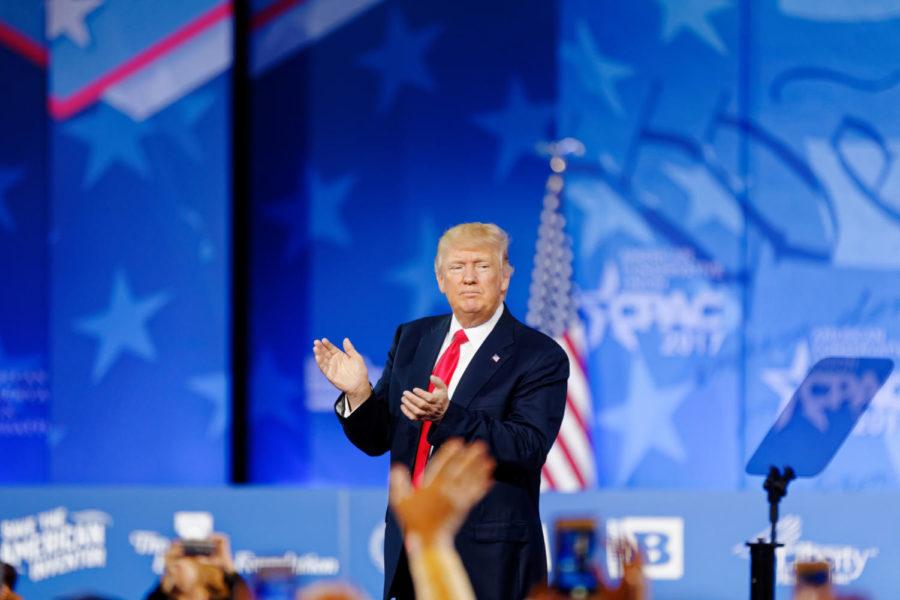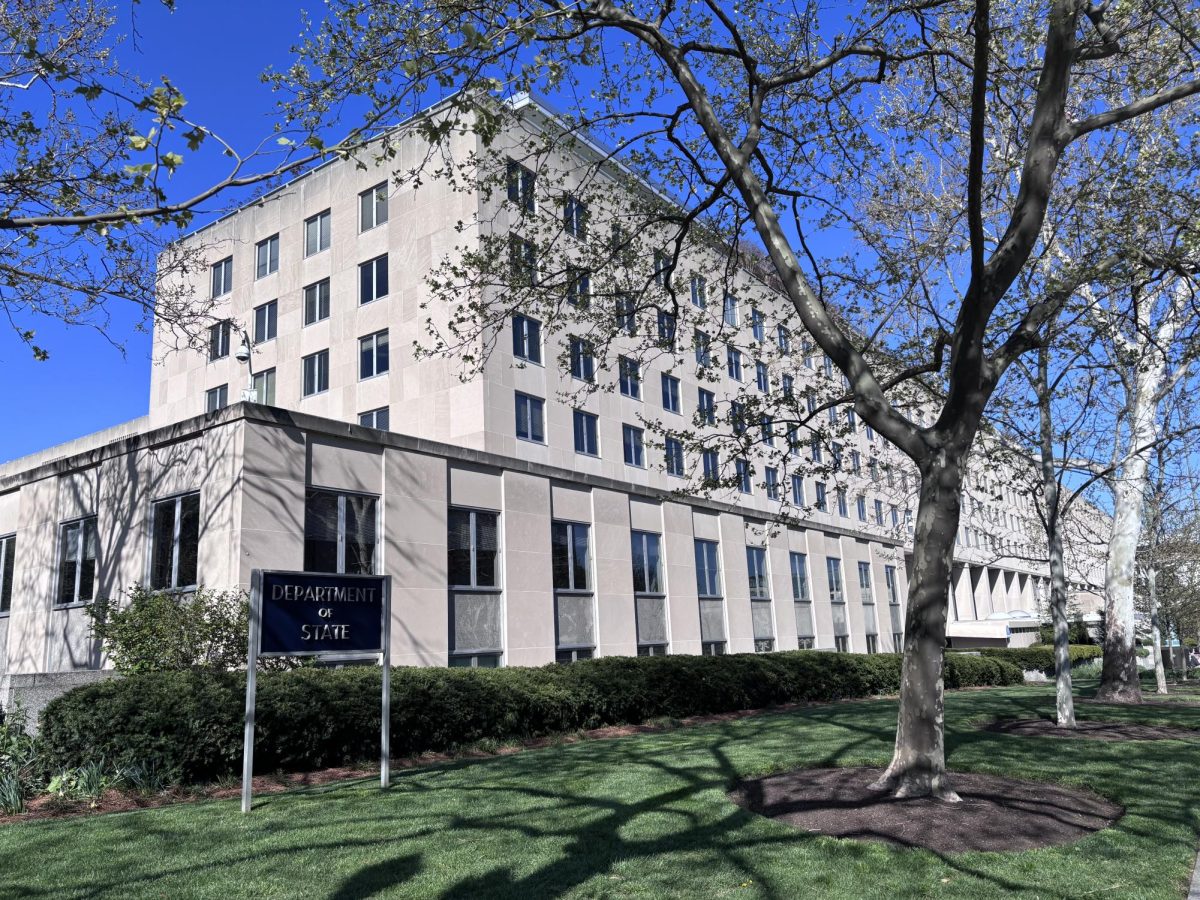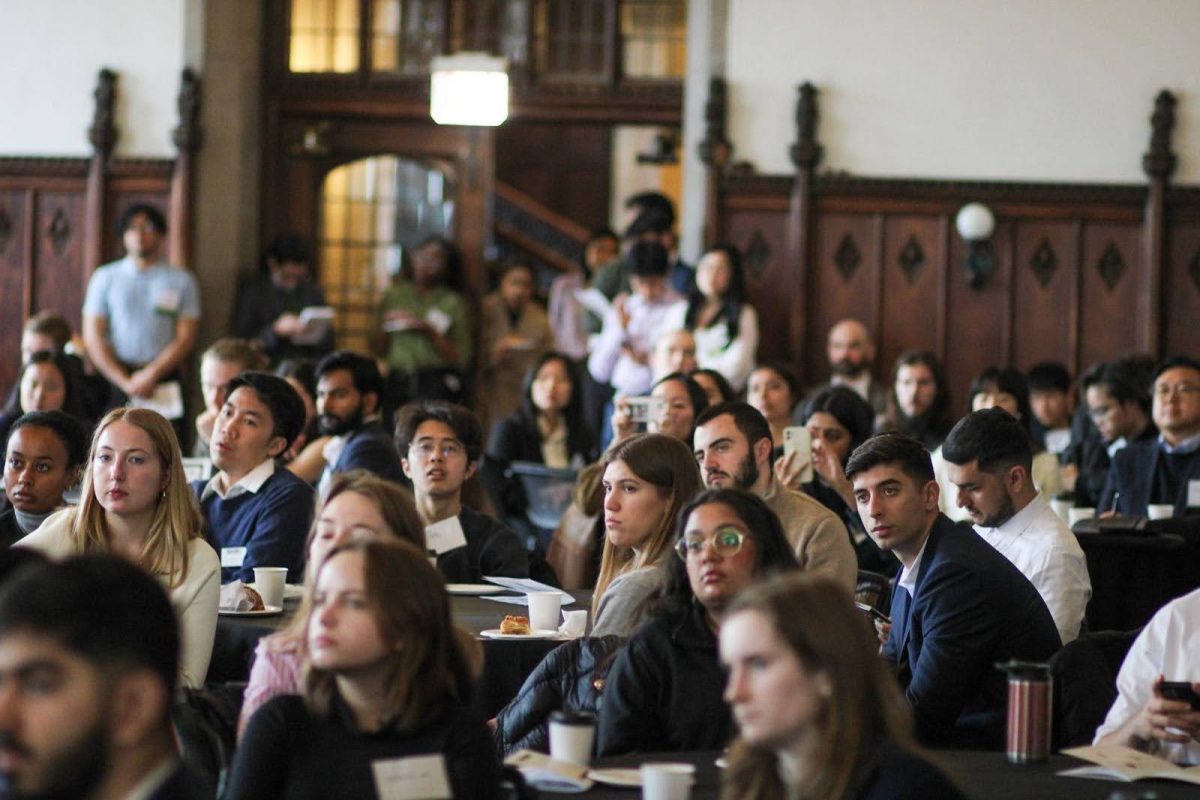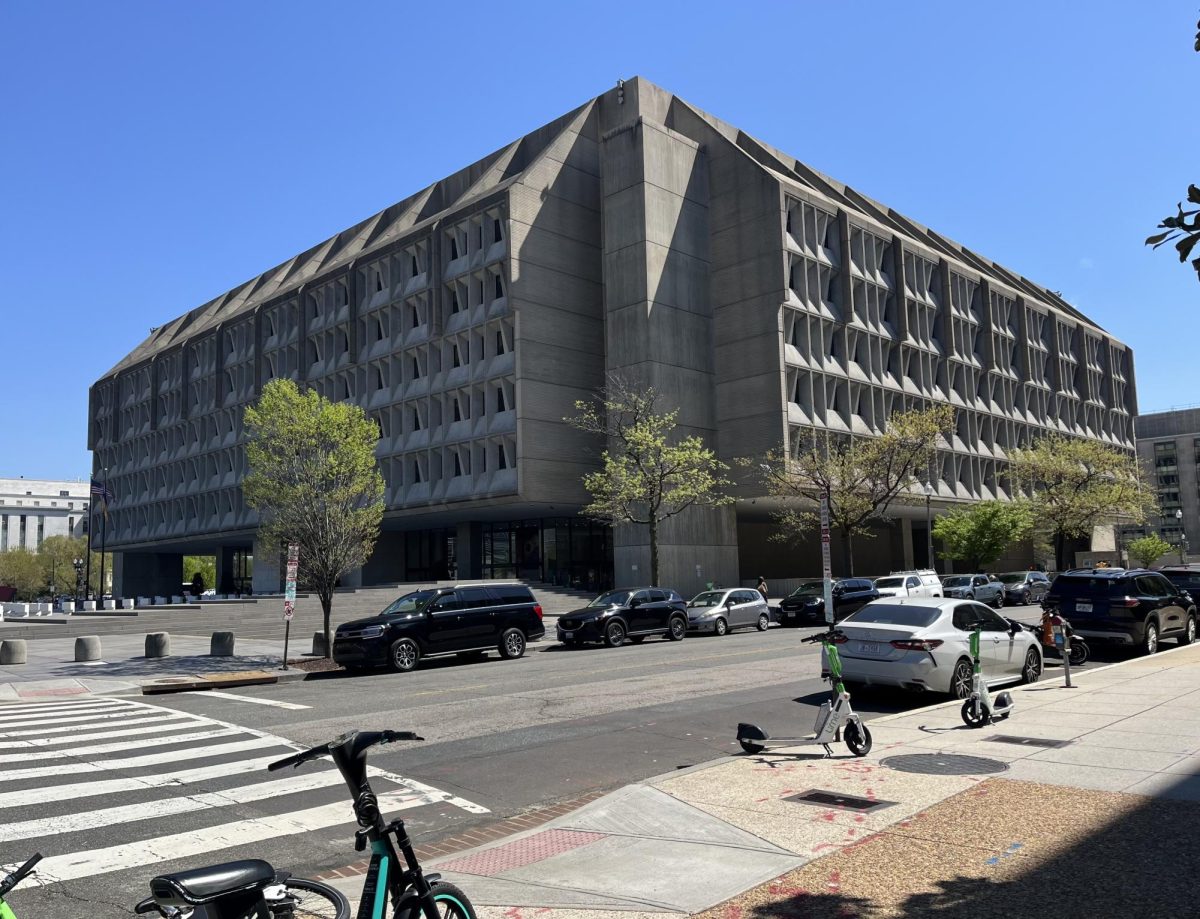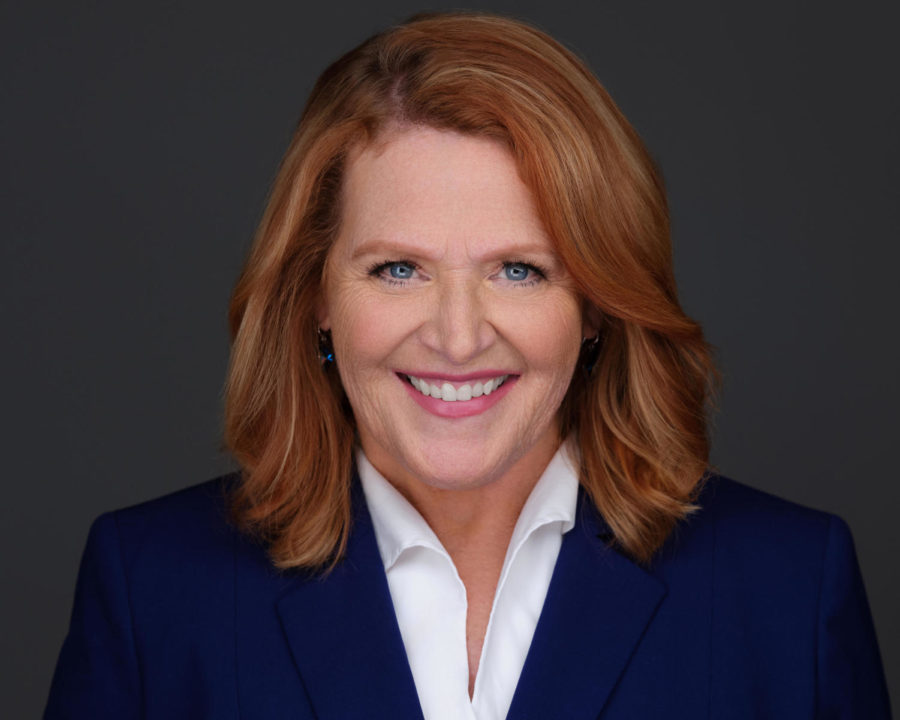President Donald Trump announced that he will be signing an executive order that requires universities to support free speech in order to receive federal research funding, one of many promises made in an impassioned speech today at the Conservative Political Action Conference (CPAC).
Trump made the promise after appearing on stage with a conservative activist who said he was physically attacked while recruiting students for Turning Point USA, a right-wing non-profit, at the University of California, Berkeley.
“Today I am proud to announce that I will be very soon signing an executive order requiring colleges and universities to support free speech if they want federal research funding,” Trump said.
Trump did not offer additional details about the executive order, including what constituted “support” of free speech. It is also unclear whether or to what extent the White House could control the flow of research funding without a congressional vote.
Trump’s proposal could potentially affect private universities as well, as federal research funding is also provided to them. Cuts in research funding would be very disruptive, as federal funds are still the main way that academics in the United States fund their research.
Defense of campus free speech has become a central issue for many American conservatives. In October 2017, the American Enterprise Institute (AEI), a right-leaning think-tank, published an article urging the government to withhold federal research dollars from institutions that do not commit to what they believed to constitute free speech, language President Trump mirrored in his speech at CPAC. In that article, the AEI stated that such a plan could be “implemented by Congress, by presidential directive, or by individual grant-making agencies.” The AEI cited in a 2018 article the University of Chicago's free speech principles as a model for protecting free speech on university campuses.
Over the past decade, the University of Chicago has molded itself into one of the foremost advocates of free speech at universities.
In 2014, the University adopted the Chicago Principles, a document iterating UChicago’s commitment to free speech that has since become one of seminal documents of the campus free speech movement. The landmark statement on free expression in higher education has since been adopted by several other institutions; its spread is a stated ambition of many supporters of campus free speech, such as the Foundation for Individual Rights in Education (FIRE). In September 2015, FIRE embarked on a national campaign urging American universities to accept the Chicago Principles. As of March 2019, 56 schools have approved the statement in some respect.
In 2016, Dean of Students Jay Ellison made national headlines by sending a letter to the then-incoming class of 2020 about free speech. In that letter, Ellison stated that the University’s “commitment to academic freedom means that we do not support so-called ‘trigger warnings,’ we do not cancel invited speakers because their topics might prove controversial, and we do not condone the creation of intellectual ‘safe spaces’ where individuals can retreat from ideas and perspectives at odds with their own.”
Trump’s suggested executive order could be similar to an order signed by Doug Ford, the premier of Ontario, Canada. As The Maroon reported, the province required publicly-funded universities and colleges to accept the University of Chicago’s Chicago Principles on free speech by January 1, 2019 or face the possibility of funding reduction.
Though the January 1 deadline has passed, the order has not been carried out by all of Ontario’s public universities. The National Post reported at the beginning of February that “only two [public universities] give unconditional protection to freedom of speech,” as outlined in the Chicago Principles. It remains to be seen whether Ford will direct his government to cut fundings as threatened.



